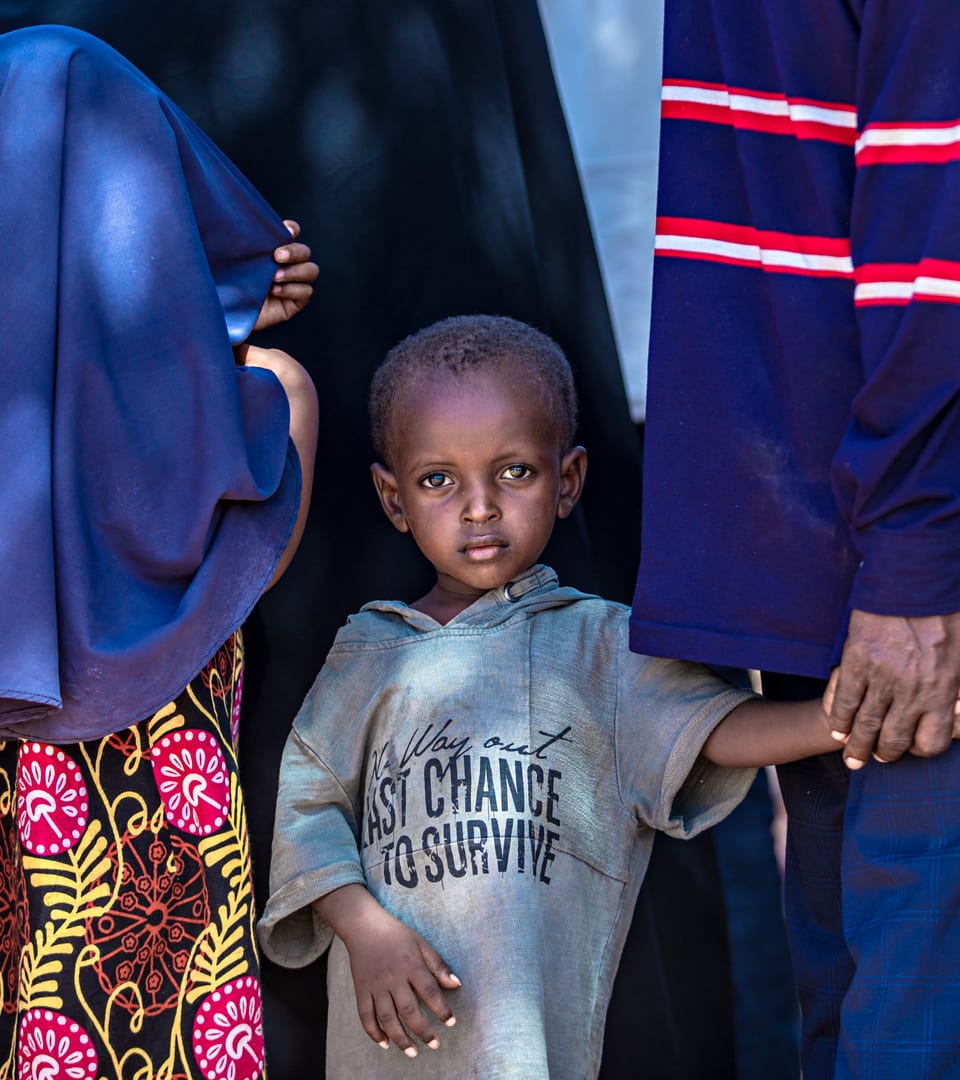Under the shadows cast by a gaunt acacia tree, some forty women and children huddle together in a cheerful chirping. Many sit cross-legged on coloured mats spread out on the dry grass. Babies cling to their mothers' arms. Still others stand waiting for their turn to be seen. At 7:30 a.m., the team coordinated by clinic manager Bernard Mutwiri has set up two tables and a few chairs as close as possible to the trunk, as well as a measuring rod and a bathroom scale. It's all set up as a doctor's office in the middle of the countryside.
We're in Leheley, on the outskirts of Modogashe, a village lost in the vast arid and semi-arid zones of north-eastern Kenya. It takes over 150km and many hours of bad roads to reach Garissa, the capital of this county crossed by the equator, home to almost 900,000 inhabitants scattered over an area the size of Switzerland. In these isolated conditions, and at a time when the region is bearing the full brunt of global warming, Bernard Mutwiri and the professionals working alongside him - nurses, nutritionists and pharmacists - are fulfilling a mission that has become crucial for the population.

Wrapped in a large purple veil, Kamila holds her niece, Hikma, firmly on her hip with the help of pink absorbent cotton. When the little girl's mother died, she took her into her thatched house, where two other orphans and her own children live. The ordinary life of this home has been turned upside down by the drought that has hit the region.
Last February, when the local medical team measured her niece Hikma's arm circumference, the verdict was in: acute malnutrition. The little girl was immediately put on an ambulatory therapeutic programme. Her recovery accelerated thanks to financial support that enabled her aunt to buy food for her and share it with her other children.
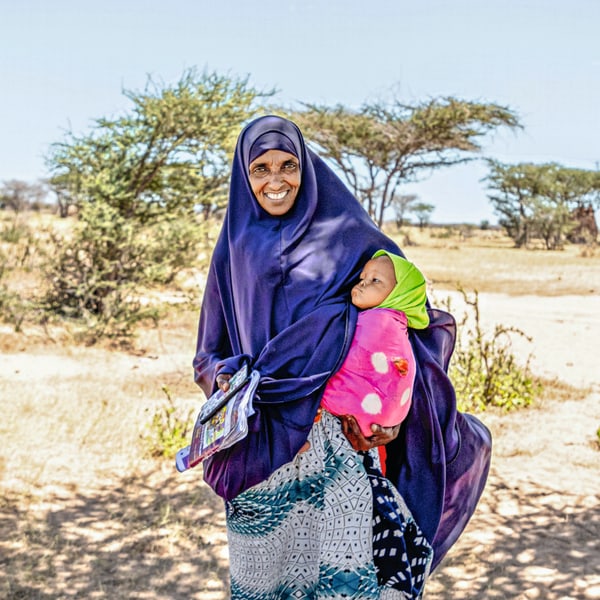
"The little one is doing better. All my children are fine."
Since families like Kamila's are too far from health care facilities, health services with multidisciplinary teams come to them. Launched in October 2022 with the support of Swiss Solidarity, this project, run hand in hand by Terre des hommes, the Kenyan Ministry of Health and the local authorities, focuses on reducing illness and death among children under five as well as pregnant women and nursing mothers.
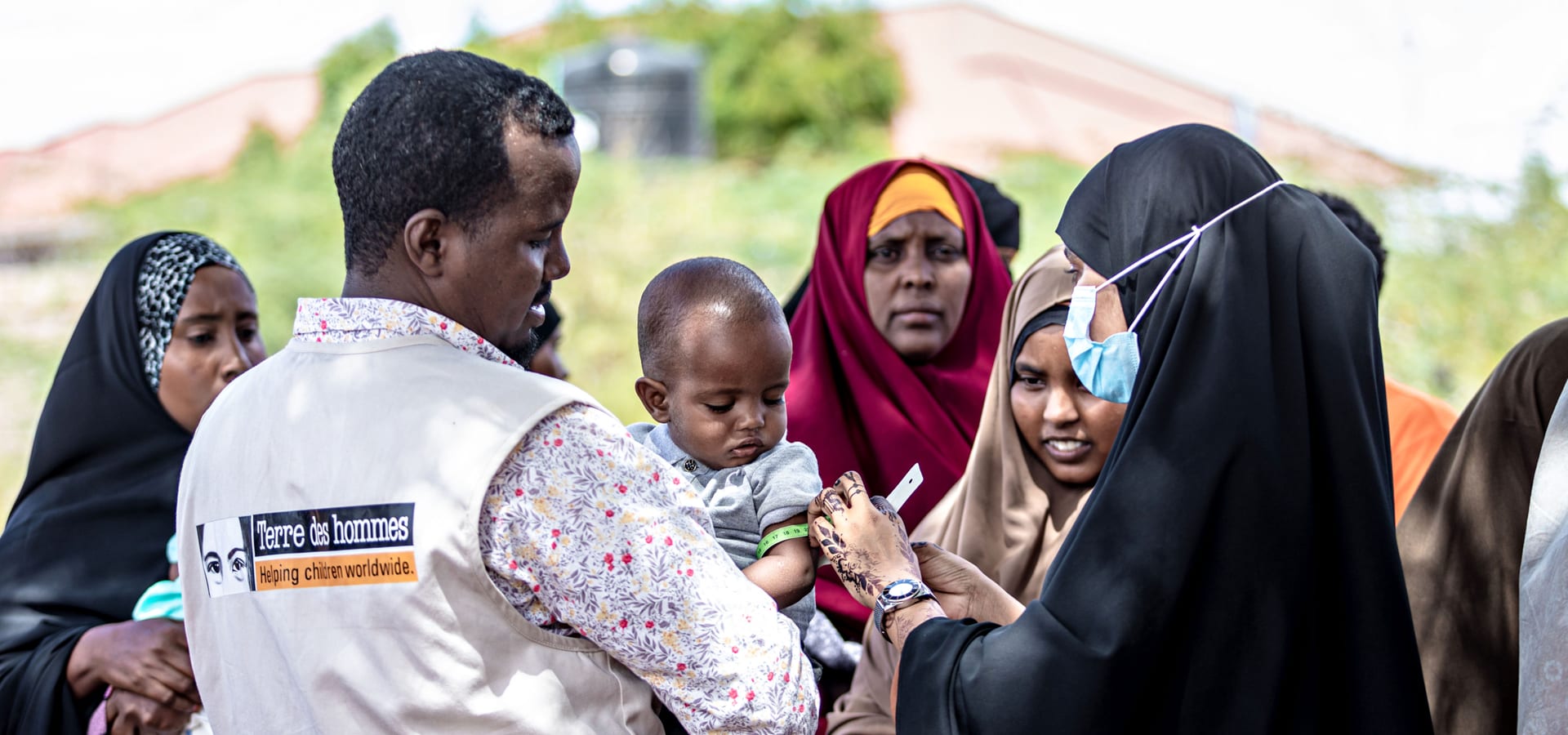
In Leheley, at the foot of the tree, the morning will be devoted to giving health advice to mothers, promoting hygiene practices, vaccination and providing medicines and vitamin supplements to those who need them, and above all, screening malnourished children in order to refer the most worrying cases to Modogashe hospital.
Of course, water-related concerns are a constant in northern Kenya, and more widely in the Horn of Africa. But over the past three years, in a region that receives two rainy seasons a year, five consecutive seasons have failed. The lack of rainfall has led to an even more severe drought than that of 2010, which had already left its mark for its exceptional severity. Once again, the nutritional status of the population deteriorated considerably. The collapse of milk production, the primary source of protein for these 95% pastoral families, exacerbated the food crisis. More than nine out of ten herd owners reported having lost livestock.
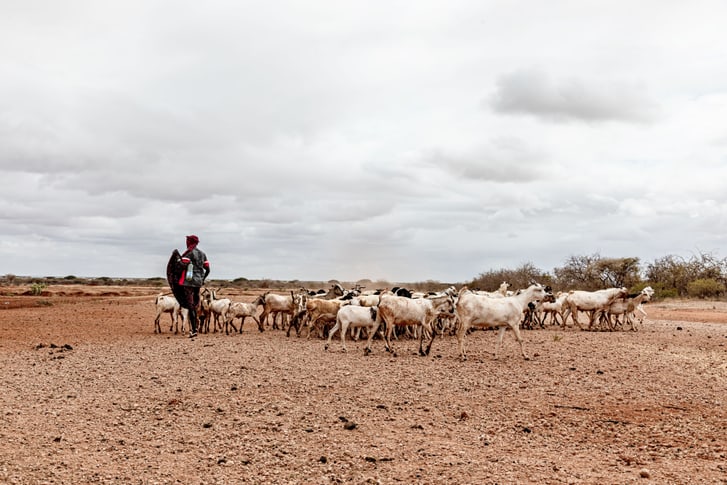
Like everyone around her, the economic equilibrium of Kamila's household depended on the family herd. "We went through a difficult period. There was no water to drink and many diseases started to spread. With no pasture, our livestock died. Even our donkeys and camels became too weak to carry anything. In the end, we ran out of money to buy essential goods, including food," says this mother.
"Our aim is to give the Kenyan authorities the means to do more and go further. The mobile teams that go out to the communities combine expertise in health and child protection. We also distribute hygiene kits containing a 20-litre jerry can, a bucket, a bar of soap and water treatment products. Also, as part of our project, we have strengthened the skills of several dozen health and child protection workers so that they can detect and intervene directly with members of their communities."
After receiving appropriate treatment, 95% of children under the age of five suffering from malnutrition recovered.
Little Maryan has also come a long way. She is the youngest of five siblings living in a small mud house with a makeshift roof in a village on the outskirts of Garissa. On the floor, the family has only rags to serve as mattresses. "We've only got a few head of cattle left," confides Sahara, the mother, shyly veiled in red. As part of an outreach operation, Tdh diagnosed Maryan's acute malnutrition and immediately referred her to the Madina health centre in Garissa. Risala Hussein, the clinic's nutrition-ist, took charge of the little girl as soon as she arrived. We had to act fast. "Maryan was in a serious condition, she arrived at the clinic just in time," recalls the 31-year-old with emotion.
"Maryan's mother had realised that her baby was not developing normally. During her pregnancy, she herself had suffered from hunger. And it didn't get any better afterwards," continues the nutritionist with a gentle smile highlighted by a dash of lipstick. Fortunately, the administration of medication and ready-to-use therapeutic foods soon enabled the little girl to regain her strength. In just a few weeks, she went from 4.6 to 9.8 kg: "Nothing could make me happier than to see my daughter gain weight again," says Sahara, her mother, hugging the little girl tightly.
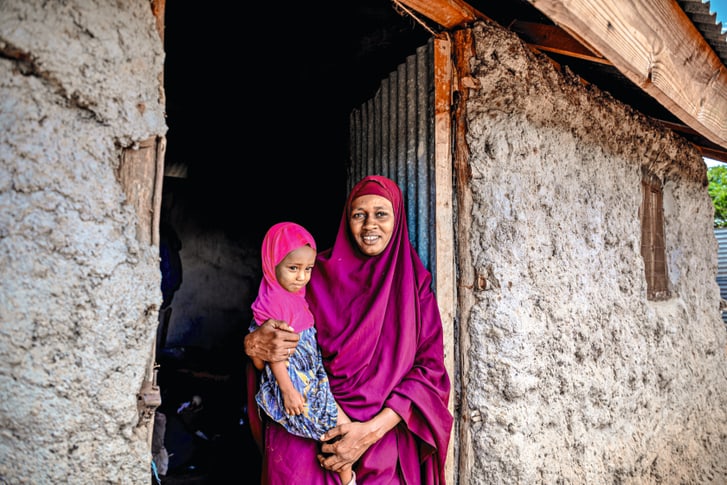
The future leaves this young mother wondering: "Global warming is weighing on our lives. The solution would be to plant more trees and dig more wells. Unless we consider moving away, to a place where we'll find water and pasture."
Yes, I want to help
